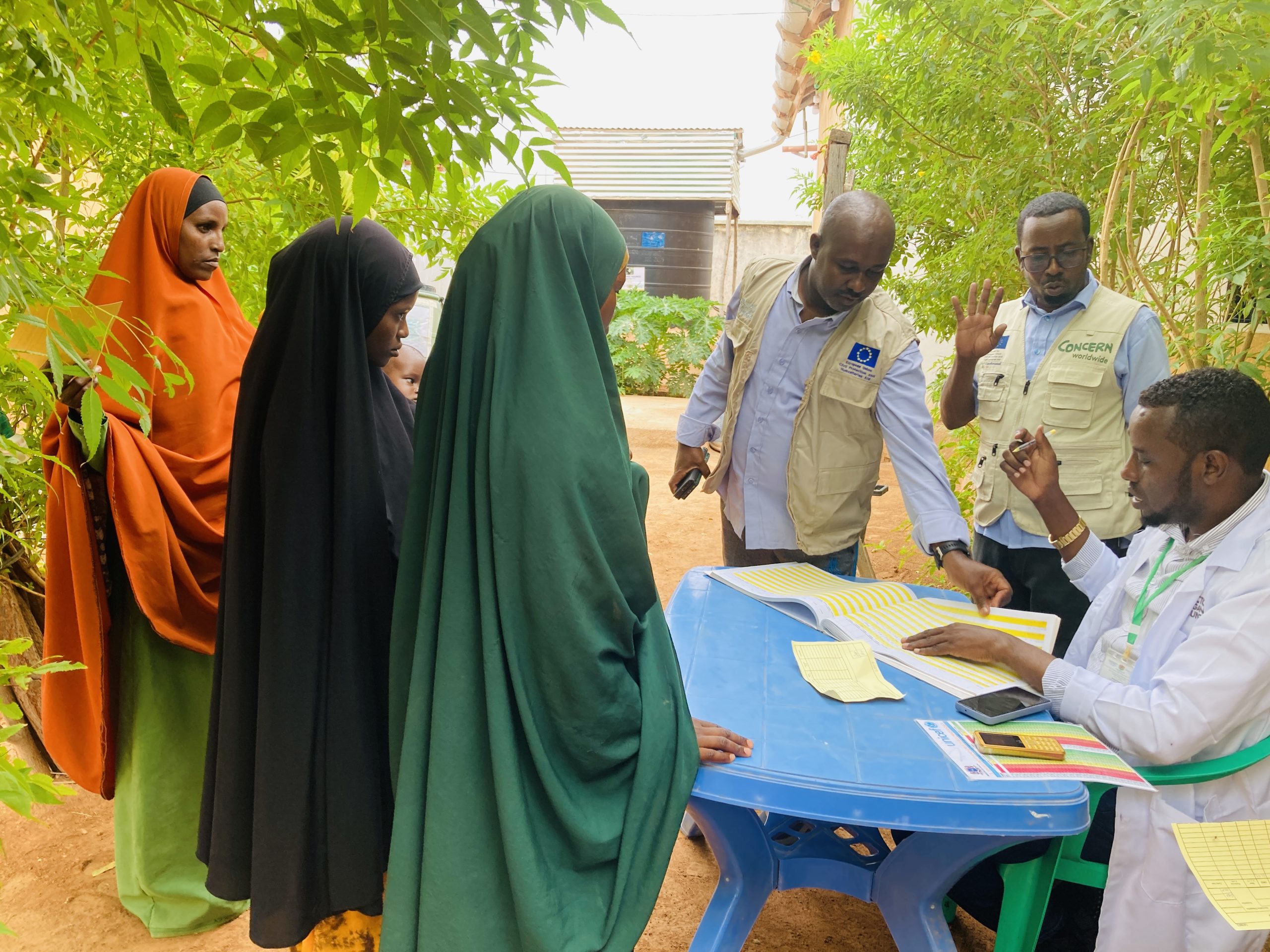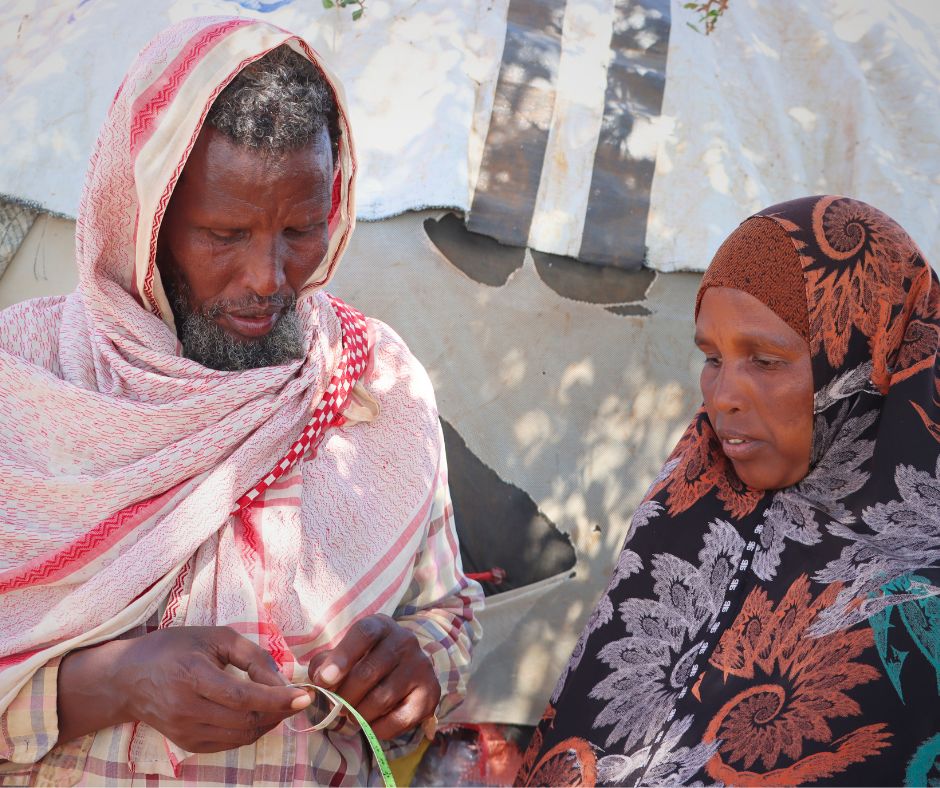The Community-Based Management of Acute Malnutrition (CMAM) Surge approach is helping health systems address seasonal surges in malnutrition caused by shocks like droughts, floods, and conflict. In Somalia, it enables health systems to predict, plan, and respond effectively to increases in malnutrition through community and facility-based monitoring.
Led by Concern Worldwide under the CaafimaadPlus Consortium, with funding from EU Humanitarian Aid and the British Embassy in Mogadishu, the CMAM Surge approach strengthens health systems by building the capacity of health workers and District Health Management Teams (DHMTs) to deliver timely, high-quality care during crises.

supervises health facility staff in Hudur. Photo by Concern Worldwide.
As of November 2024, 305 health workers trained in data-driven decision-making have enhanced service delivery. The approach facilitated timely responses to the 2023 El Niño floods, including staff deployment, prepositioning supplies, and outreach to isolated communities. These efforts achieved a 97% cure rate while maintaining care quality.
“Before CMAM Surge, we couldn’t track caseloads. Now we track thresholds, understand risks, and plan to avoid being overstretched,” says Fahma Yasin Ali, a nurse at Siinka-Dheer health facility.
Through this approach, nine facilities implementing CMAM Surge have treated 78,331 children under five for acute malnutrition, reducing staff workload and ensuring high-quality care during crises.

Under CaafimaadPlus, CMAM Surge phases include analyzing local contexts, capacity building, setting thresholds, planning responses, monitoring surges, and adapting strategies to strengthen health systems. Integrated into routine health services, the program utilizes digital tools for real-time data tracking across the nine facilities.
Erratic rains from October to December 2024 have put over 1.6 million children at risk of malnutrition in 2025, emphasizing the need for timely interventions. CMAM Surge Committees—comprising health teams, DHMTs, and community representatives—regularly coordinate, share insights, and support context-specific responses.
Despite challenges such as staffing shortages and hard-to-reach areas, health facilities now respond proactively without compromising care quality. Looking ahead, CaafimaadPlus will advocate for government ownership and funding to ensure the program’s sustainability.







